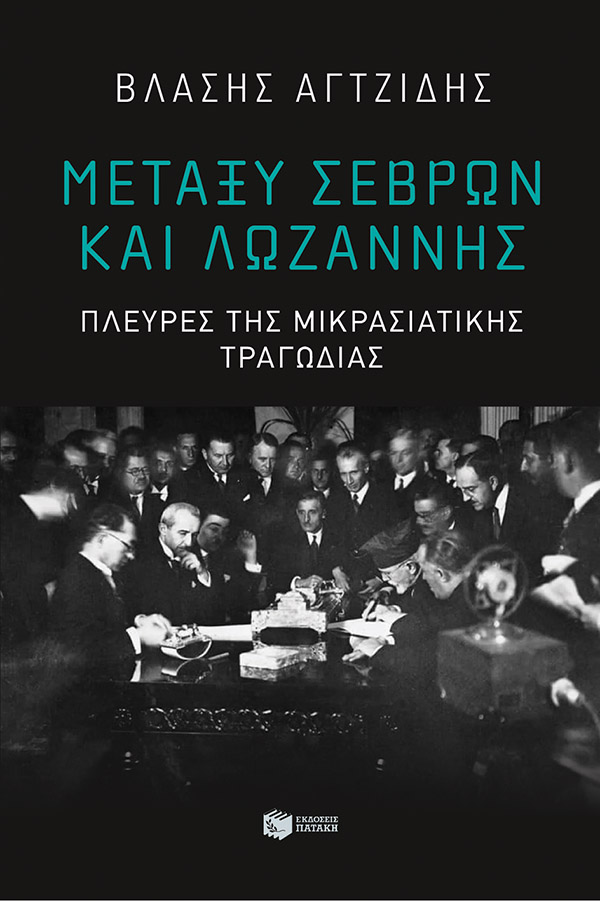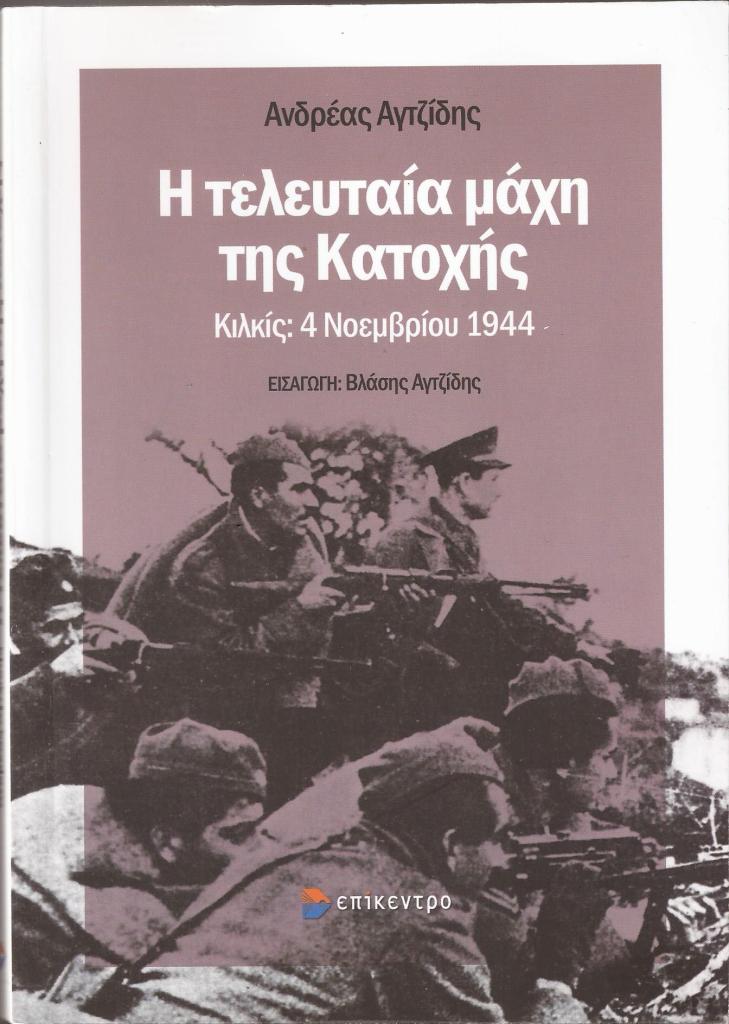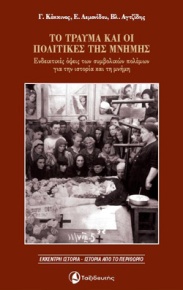 Στο πλαίσιο του Σεμιναρίου Ιστορίας («Ελεύθερο Πανεπιστήμιο» του Δήμου Κηφισιάς «Έπαυλη Δροσίνη»-Βιβλιοθήκη Δήμου Κηφισιάς, Αγ. Θεοδώρων & Κυριακού…) θα παρουσιαστεί την Τρίτη 15-1-2013 ένα άγνωστο θέμα, ελάχιστα μελετημένο, που αφορά τις προσπάθειες που έγιναν μετά το τέλος του Α’ Παγκοσμίου Πολέμου για τη δημιουργία της Δημοκρατίας του Πόντου στα βορειοανατολικά παράλια της Μικράς Ασίας:
Στο πλαίσιο του Σεμιναρίου Ιστορίας («Ελεύθερο Πανεπιστήμιο» του Δήμου Κηφισιάς «Έπαυλη Δροσίνη»-Βιβλιοθήκη Δήμου Κηφισιάς, Αγ. Θεοδώρων & Κυριακού…) θα παρουσιαστεί την Τρίτη 15-1-2013 ένα άγνωστο θέμα, ελάχιστα μελετημένο, που αφορά τις προσπάθειες που έγιναν μετά το τέλος του Α’ Παγκοσμίου Πολέμου για τη δημιουργία της Δημοκρατίας του Πόντου στα βορειοανατολικά παράλια της Μικράς Ασίας:
 Η ελλαδική ιστοριογραφία αντιμετωπίζει με τρόπο ελλειπτικό, έως και σήμερα, την τελική διαδικασία της διάλυσης της Οθωμανικής Αυτοκρατορίας (1908-1923):
Η ελλαδική ιστοριογραφία αντιμετωπίζει με τρόπο ελλειπτικό, έως και σήμερα, την τελική διαδικασία της διάλυσης της Οθωμανικής Αυτοκρατορίας (1908-1923):–επικεντρώνοντας την ανάλυση στην τελευταία της φάση (1919-1922),
–παραγνωρίζοντας τις εσωτερικές ταξικές συγκρούσεις στην οθωμανική κοινωνία,
–ιεροποιώντας το μιλιταριστικό τουρκικό εθνικιστικό κίνημα και
–αγνοώντας τη βούληση και τα αντιαπολυταρχικά κινήματα που ανέπτυξαν κάποιοι από τους γηγενείς πληθυσμούς.
Η προσπάθεια για αυτονομία των Ελλήνων του Πόντου, που έλαβε διάφορες μορφές, εντάσσεται στην ίδια ιστορική κατηγορία με:
-την προσπάθεια των Αρμενίων για δημιουργία αρμενικού κράτους στα παλιά οθωμανικά εδάφη,
-τις προσπάθειες κάποιων κουρδικών φύλων για αυτονομία όπως και των Κιρκασίων της Βιθυνίας,
-το αίτημα των Ελλήνων της Ιωνίας με την οργάνωση Μικρασιατική Άμυνα για τη δημιουργία Αυτόνομου Μικρασιατικού Κράτους κ.λπ.
Η διατριβή του Ευ. Γεωργανόπουλου μας δίνει για πρώτη φορά την πλήρη εικόνα αυτής της ιστορικής απόπειρας.
.
.
.
Ενδιαφέροντα κείμενα για το θέμα μπορείτε να βρείτε:
.
 Στο πλαίσιο του Σεμιναρίου Ιστορίας («Ελεύθερο Πανεπιστήμιο» του Δήμου Κηφισιάς «Έπαυλη Δροσίνη»-Βιβλιοθήκη Δήμου Κηφισιάς, Αγ. Θεοδώρων & Κυριακού…) θα παρουσιαστεί την Τρίτη 15-1-2013 ένα άγνωστο θέμα, ελάχιστα μελετημένο, που αφορά τις προσπάθειες που έγιναν μετά το τέλος του Α’ Παγκοσμίου Πολέμου για τη δημιουργία της Δημοκρατίας του Πόντου στα βορειοανατολικά παράλια της Μικράς Ασίας:
Στο πλαίσιο του Σεμιναρίου Ιστορίας («Ελεύθερο Πανεπιστήμιο» του Δήμου Κηφισιάς «Έπαυλη Δροσίνη»-Βιβλιοθήκη Δήμου Κηφισιάς, Αγ. Θεοδώρων & Κυριακού…) θα παρουσιαστεί την Τρίτη 15-1-2013 ένα άγνωστο θέμα, ελάχιστα μελετημένο, που αφορά τις προσπάθειες που έγιναν μετά το τέλος του Α’ Παγκοσμίου Πολέμου για τη δημιουργία της Δημοκρατίας του Πόντου στα βορειοανατολικά παράλια της Μικράς Ασίας: Η ελλαδική ιστοριογραφία αντιμετωπίζει με τρόπο ελλειπτικό, έως και σήμερα, την τελική διαδικασία της διάλυσης της Οθωμανικής Αυτοκρατορίας (1908-1923):
Η ελλαδική ιστοριογραφία αντιμετωπίζει με τρόπο ελλειπτικό, έως και σήμερα, την τελική διαδικασία της διάλυσης της Οθωμανικής Αυτοκρατορίας (1908-1923):
















Δύο ενδιαφέροντα βίντεο:
THE AUTONOMOUS HELLENIC REPUBLIC OF PONTUS
A HISTORICAL PERSPECTIVE
By Georgios Gialtouridis
On January 8, 1918 President Woodrow Wilson presented his ‘Fourteen Points’ to a joint session of the United States Congress. President Wilson’s ‘Fourteen Points’ was a blueprint designed to convince the Germans to cease World War I hostilities and that leniency would be assured in the subsequent peace treaties, thus bringing an end to the War. The decaying Ottoman Empire had sided with Germany and the Central Powers during the War and Wilson’s Point Twelve addressed the Ottomans’ fate:
XII. The Turkish portion of the present Ottoman Empire should be assured a secure sovereignty, but the other nationalities which are now under Turkish rule should be assured an undoubted security of life and an absolutely unmolested opportunity of autonomous development, and the Dardanelles should be permanently opened as a free passage to the ships and commerce of all nations under international guarantees.1
President Wilson had called for the right to self-determination and autonomy for the various ethnic groups within Asia Minor, inclusive of the Greeks. Inspired by Wilson’s Point Twelve, Pontian-Greeks of the Diaspora who had already organized a Pontian Movement assembled in Marseilles, France in February of the same year for the First World Pan-Pontian Convention. There they promoted their vision of an Autonomous Hellenic Republic of Pontus.
In January of the following year, the Paris Peace Conference took place in order to ratify treaties ending World War I. Many dignitaries were present, including President Wilson. In March, a delegation of Pontian-Greeks, headed by the wealthy merchant Konstantinos Konstantinidis, presented to the Peace Conference a Memorandum bringing to their attention the plight of the Greeks living in Pontus and detailing their aspirations for an independent Republic on the southern shores of the Black Sea.1
Stephen Bonsal, a New York Times correspondent, was President Wilson’s private translator during the Peace Conference. In his memoir «Suitors and Suppliants: The Little Nations at Versailles» (1946) Bonsal reflects on the day the Pontian-Greek delegation visited the office of President Wilson. (p. 216-219) 3
On May 16, 1919 at 3:00 pm a scheduled meeting took place between Archbishop Chrysanthos of Trapezous and President Wilson at the Paris Peace Conference.4
There the Archbishop presented the case for an Autonomous Republic of Pontus to which President Wilson not only did not object but also concurred. Besides, such an idea echoed his twelfth Point.
The two major treaties ratified as a result of the Paris Peace Conference were the Treaty of Versailles and the Treaty of Sevres, punishing the Germans and Turks respectively for their hostilities during the War.
The Treaty of Sevres (1920) is considered the biggest diplomatic triumph in modern Greek history. Greek Premier Eleftherios Venizelos, also present at the Paris Peace Conference, secured Greek sovereignty over Smyrna and Eastern Thrace. But despite countless pleas from the Pontian-Greek delegation, Pontus was not in Venizelos’ vision of the Megali Idea. Perhaps the Premier’s remarks as reflected on p. 219 of Bonsal’s memoir may shed some light as to his position regarding Pontus.
Just as the Treaty of Versailles infuriated a young Adolf Hitler as he perceived the terms of the Treaty unreasonable, so did the Treaty of Sevres infuriate Mustafa Kemal Pasha and his nationalist movement. Despite valiant efforts from the heroic Pontian Resistance fighters, an ethno catharsis perpetuated from years earlier was now spreading over Asia Minor and Thrace with such unimaginable savagery and brutal force it could only be described by one word – Genocide.
The geopolitical climate in the years immediately following was favorable to Kemal. The Bolsheviks as well as the Europeans found an ally in Turkey. Kemal managed something that Hitler could not: to overturn his respective Treaty. The subsequent Treaty of Lausanne ended the dream.
One of the original visionaries of an Autonomous Hellenic Republic of Pontus was Philon Ktenidis. He wrote what was then considered the Pontian National Anthem. To those who may consider it inappropriate, please keep in mind that it was composed in the context of an independent Republic.[see video below]
Footnotes:
[1] President Wilson’s Fourteen Points
[2] Memorandum submitted to the Peace Conference. (pdf)
[3] Suitors and Suppliants: The Little Nations at Versailles (1946) Bonsal -p:216-219. (pdf)
[4] What Wilson did at Paris By Ray Stannard Baker
http://pontosworld.com/index.php?option=com_content&task=view&id=1329&Itemid=98
Georgios Gialtouridis
Newton, MA
[…] https://kars1918.wordpress.com/2013/01/14/pont-euxin/ […]